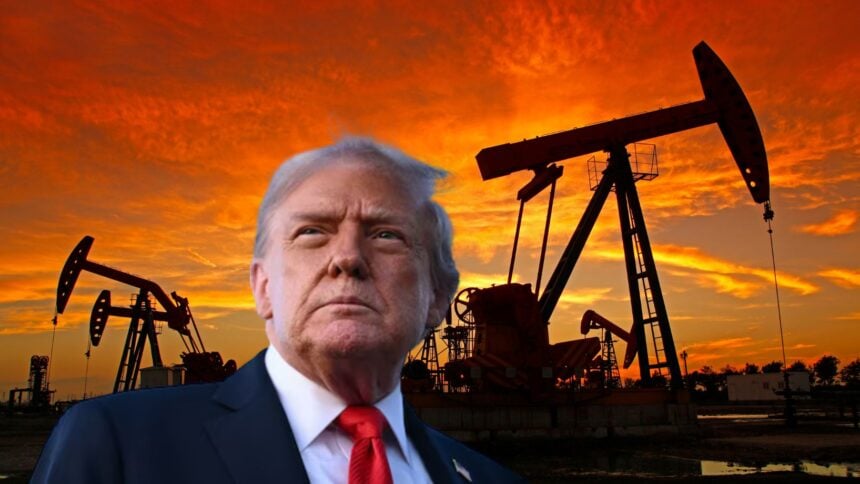President Donald Trump called on NATO members to stop purchasing Russian oil and said he is prepared to pursue a new round of sanctions on Moscow if the alliance acts together.
He also urged NATO governments to consider tariffs of 50% to 100% on China, arguing that Beijing’s purchases of Russian crude help finance the war in Ukraine.
The push, delivered in a public statement and a letter to alliance capitals, adds a new trade lever to Washington’s efforts to choke off Kremlin revenue.
It follows a Group of Seven discussion of fresh economic steps, including tariffs targeting countries that continue to buy Russian petroleum. The Treasury Department has pressed G7 and European Union partners to adopt similar measures.
Trump’s appeal lands as the administration calibrates pressure on major Russian oil buyers. The White House has already added a 25% import duty on Indian goods, lifting total tariffs on India to about 50% in response to New Delhi’s continued purchases of Russian crude. The president has not taken comparable action against China while trade talks continue.
Several NATO countries still import Russian oil, complicating a coordinated embargo. Turkey is among the largest buyers, with Hungary and Slovakia also cited by researchers as continuing to source barrels.
Trade and energy analysts say the plan’s bite would depend on how broad the net is cast. A NATO-only halt would disrupt some Mediterranean and Central European flows.
Adding heavy tariffs on Chinese trade would try to squeeze the world’s biggest buyer of Russian crude. China and India together absorbed the bulk of Russia’s seaborne exports in mid-2025, with estimates showing China at roughly 47% and India near 38% in May through July, according to a CSIS analysis that draws on cargo-tracking data.
The administration’s message to allies is that sanctions work best when synchronized. U.S. officials have signaled they want measures that turn off the revenue spigot rather than simply reroute barrels.
The latest pitch pairs a NATO oil halt with tariffs on third countries seen as enabling Russia’s sales. Whether Europe, Canada, and Asian allies move together will determine how much stress the plan places on Russia’s budget.
Energy markets will read this through two lenses, supply risk and enforcement risk. If NATO members stop buying Russian crude and if tariffs effectively raise the cost of moving barrels to Asia, traders would anticipate tighter prompt supply, which tends to support benchmark prices and widen light-heavy spreads.
Refiners that rely on discounted Russian grades would need alternative feedstocks, a shift that can lift margins for producers in the Middle East, the United States, and Latin America. None of this is automatic.
Russia has relied on a large shadow fleet and complex intermediaries to keep cargoes moving, and previous measures have sometimes redirected rather than reduced flows.
Higher crude can feed into gasoline and diesel prices, which in turn influence inflation expectations and central bank path debates.
Shale and Canadian oil sands operators, a firmer price deck could bolster cash flows and share buybacks, though service costs and takeaway constraints remain gating factors. Energy-heavy indexes in Toronto and commodity-linked currencies often track these swings.
The geopolitical calculus is equally important for risk assets. A NATO-aligned ban that is implemented quickly would send a stronger signal to bond and currency markets than a slow, patchwork rollout.
It would also raise the stakes for talks with Beijing, since retaliatory measures or exemptions could blunt the tariffs’ intent.
The existing U.S. tariff hike already strains a once-buoyant trade narrative and could push state-owned refiners to diversify sooner, with knock-on effects for regional crude differentials.




















